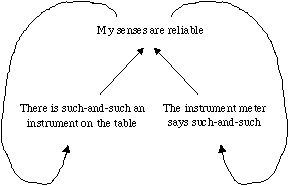


Space Odyssey: Stanley Kubrick, Arthur C.Truth, Politics, Morality: Pragmatism and Deliberation by Cheryl Misak February 24, 2020.Submission: A Novel by Michel Houellebecq February 29, 2020.The Elementary Particles by Michel Houellebecq March 9, 2020.A Note to Our Gracious Readers April 21, 2020 116-117 According to BonJour, 'something like Sellars' view of observation seems to me the basic ingredient which is required if a coherence theory of empirical knowledge is to be even a prima facie candidate for a correct account of empirical knowledge.' 6.(10/10/10)Įnter your email address to follow this blog and receive notification.įollow Follow An Ingenious Device for Avoiding Thought on Recent Posts In fact, in later years, BonJour abandoned the coherence theory of justification he defended in this book. He recognizes this fact and concedes that a “pure” coherence theory will not work. LAURENCE BONJOUR THE COHERENCE THEORY OF EMPIRICAL KNOWLEDGE (Received 7 October, 1975) In a paper written for a commemorative symposium on the philosophy of C. However, by insisting that a coherence theory has to allow for observational input (the “Observation Requirement”), he ends up with a theory that seems almost as foundationalist as coherentist. The Structure of Empirical Knowledge - Laurence BonJour - Google Books How must our knowledge be systematically organized in order to justify our beliefs There are two optionsthe solid. He argues that foundationalist theories cannot explain empirical justification, which leaves coherence theories as the best alternative. BonJour also strongly argues in favor of an internalist view of justification as opposed to an externalist view. The claim of a coherence theory of empirical justification is that each of. Explaining justification in terms of coherence is also different from offering a coherence theory of truth, which he rejects in favor of the correspondence theory. BonJour starts with a case in which, though Ss belief that p is the result. Coherence involves various relations, including inferential and explanatory relations. What justifies our empirical beliefs is their coherence with our other beliefs, which is more than mere consistency between beliefs. Bonjour’s The Structure of Empirical Knowledge Chapter 8 Copyright © 2013 Bruce W. Empirical Knowledge Readings From Contemporary Sources. Laurence Bonjour - 1976 - Philosophical Studies 30 (5):281 - 312. BonJour presents a coherence theory of justification for empirical knowledge. The coherence theory of empirical knowledge.


 0 kommentar(er)
0 kommentar(er)
